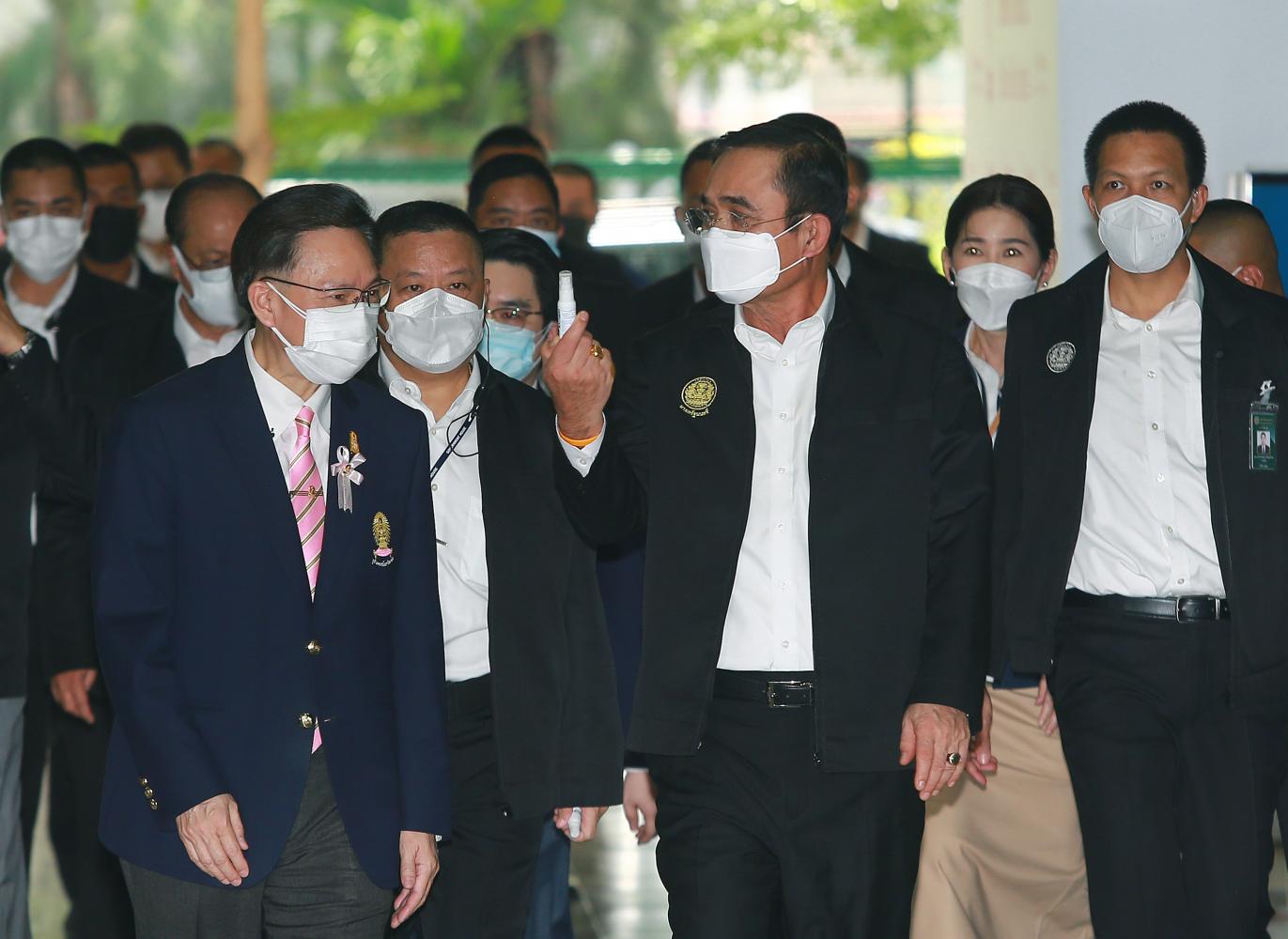
Researchers behind domestic vaccine efforts need 3 billion baht in assistance each from the government to support their vaccine research and development projects so the jabs can be rolled out before April.
Dr Kiat Ruxrungtham, leader of the research team behind Chula-VAC001, under Chulalongkorn University's Faculty of Medicine, made the remarks as he welcomed Prime Minister Prayut Chan-o-cha who visited the university to inspect progress in the development of its vaccine.
"Currently, there are four vaccines being developed in Thailand. But how can we get them registered before Songkran next year, or April 2022? If we want this, a fund of at least 3 billion baht should be set up for each vaccine," he said.


"Vaccine management also should bypass bureaucratic red tape including the Food and Drug Administration (FDA). Clear regulations must be in place by September so we can see what hurdles lie ahead," Dr Kiat said.
Without the FDA's regulations, the vaccines cannot be registered for use next year because manufacturing plants must ramp up production and orders must be placed for the vaccines beforehand, Dr Kiat said.
Gen Prayut said the government has followed progress in work on the Thai-made vaccines which might be used as booster shots for Thais next year. He said he wanted the research teams to do their best.
If there are problems with the rollout of the main vaccines currently in use, the locally developed vaccines should be able to fill the void, said Gen Prayut.
Currently, the government has allocated 400 million baht for their development, he added.
Regarding the FDA's regulations, the issue must be discussed with the FDA, Gen Prayut said.
"It is impossible to bypass the [bureaucratic] system, but we must think of how to fast-track things. As for budgets, the government must be responsible for explaining the spending. Everything must follow regulations," Gen Prayut said.
The research team behind Chula-VAC001 recently announced the vaccine's success in its first phase of human trials. Dr Kiat said 36 out of 72 volunteers, aged 18-75, received the Chula-VAC001 vaccine and exhibited no serious side effects afterwards. It was also found the ChulaCOV-19 vaccine has a high efficacy rate in preventing Covid-19 infection -- at 94%, the same as Pfizer's vaccine, Dr Kiat said.
Results obtained one week after the second dose showed it has an 80% efficacy rate against variants such as Alpha, Beta, Gamma and Delta, he said. After the success of the first-phase human trial, the team expects to start the second phase on 150 volunteers next week, he said.
He added that "Phase 2b" will follow in October with 5,000 volunteers using a combination of vaccines from overseas and BioNet Asia. However, the team needs to see a clear management plan for next year.
A research team from the Government Pharmaceutical Organization (GPO) has also launched the second phase of its egg-based NDV-HXP-S vaccine on 250 volunteers aged 18-72. The GPO hopes to produce 30 million doses annually starting in the middle of next year.
A plant-based Covid-19 vaccine, known as "Baiya Vaccine", is set to start its first phase of clinical trials next month with 100 volunteers taking part.
It is being developed by Baiya Phytopharm Co, a local pharmaceutical startup under Chulalongkorn University's Faculty of Pharmaceutical Sciences. A DNA-type vaccine is also being developed by BioNet-Asia. Co.